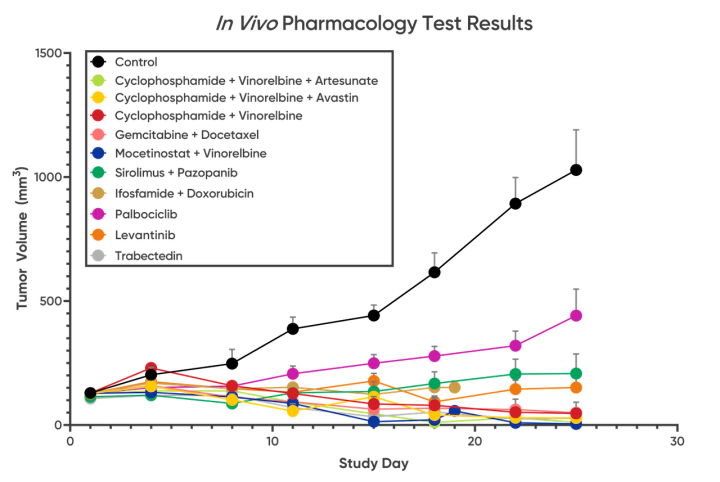The parents of a 14-year-old female patient engaged Certis to perform O-PDX pharmacology testing to inform her treatment plan. She had been recently diagnosed with Rhabdomyosarcoma (RMS), a rare type of cancer that forms in skeletal muscle tissue and sometimes hollow organs such as the bladder or uterus. RMS can occur at any age, but it most often affects children. The patient’s family, together with her oncologist, elected to test ten combination therapies using an O-PDX model of the patient’s tumor.
Methods & Results
Primary tumor fragments were orthotopically implanted into the right biceps femoris of specialized immunodeficient mice, which were randomized into five animals per therapy and treated for a period of four weeks. The study indicated that six of the ten selected therapies induced tumor regression. The most efficacious treatment, a combination of Mocetinostat and Vinorelbine, reduced tumor volume by 96.5%. By contrast, study cohorts in the control group (which received no treatment), tumor volume increased nearly 700%. The table below compares tumor size over time given all ten therapies and the control.
